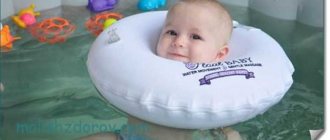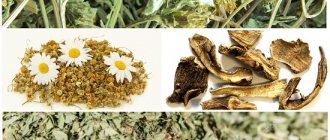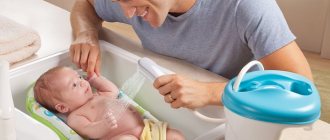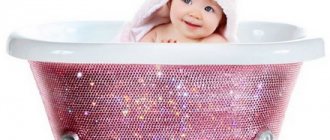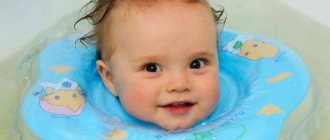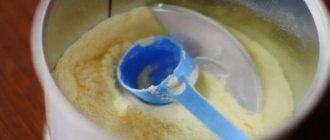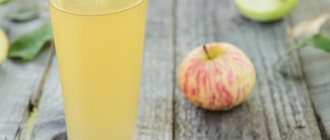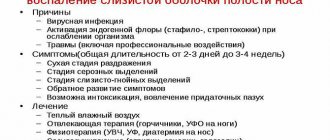Types of soothing teas for children
Children's teas are plant-based and can be:
- One-component;
- Combined, which includes a herbal mixture (experts believe that this option is the most effective).
At the pharmacy you can buy herbal tea in bags or as a mixture of dried herbs.
It is acceptable to add dried fruits and probiotics.
You can collect herbs yourself, but away from roads and populated areas.
Proper storage and compliance with expiration dates is required.
If there are doubts about the correct collection and storage, it is better to buy a ready-made pharmaceutical product.
Calming herbs for children
Hello, dear readers! Children's tantrums, whims, disruption of night sleep - most parents face these problems. And no matter how hard it is for adults, it is the child who suffers most from these problems. This includes insomnia, inability to concentrate, lack of learning ability, and difficulties in socialization. A child is more susceptible to external circumstances than an adult; he has not yet learned to manage his emotions, and often this is the only way to communicate to his parents about his needs. In any case, you as a parent can help your baby become more balanced, joyful and happy, and calming herbs for children will help you with this.
Herbs are a milder sedative than other sedatives, but not all of them are suitable for children. Therefore, before giving this or that herb to your child, you need to consult a pediatrician or neurologist. To solve a specific problem, taking into account the characteristics of the child, the doctor will select a specific herb, dosage, duration of administration and concentration of the infusion. Be sure to read the instructions for the herb you are using.
Before using sedative herbs for a child’s nervous system, know that herbs do not act instantly. It takes time for the therapeutic effect to manifest itself. The result will be noticeable no earlier than after a week of regular use. If some herb does not help, then you can try using another herb; they all differ in chemical composition and, accordingly, therapeutic effect. You can’t take them constantly; over time, the body gets used to them and they stop working. Herbs are also not as harmless as many people think. They contain high concentrations of essential oils, acids, tannins, thiamines and many other substances that can have a depressing effect on the child’s central nervous system.
And if you are not a professional herbalist, then use only herbs that are sold in the pharmacy. Pharmaceutical herbs are grown, dried according to all the rules, and collected during the period of the highest concentration of useful substances in it. Calming herbs are effective for treating many nervous disorders in children, relieve hypertension, hyperactivity and at the same time solve problems associated with digestion, flatulence, body pain, colic, toothache, normalize the functioning of the cardiovascular system and gastrointestinal tract.
Soothing herbs for children from 0-1 year old
Before introducing complementary foods, pediatricians do not recommend taking herbs orally to children. Complementary feeding begins approximately at 4 months of age. From this age, it is allowed to supplement the child with special soothing children's tea, a wide variety of which are presented in pharmacies and special children's stores. When choosing tea, read its composition; it is good if it contains lemon balm , chamomile , fennel fruits. This tea will be useful for mothers, as it enhances lactation. Tea should not contain sugar; at most it may contain dextrose. If your child is allergic, then choose tea with the smallest range of herbs, a maximum of 1-2 names, it can be chamomile and fennel or just chamomile.
It is recommended to give tea to children twice a day, thirty minutes before bedtime. From 4 months, 2-4 teaspoons, and from one year onwards, 50-100 ml. A contraindication for such tea may be individual intolerance to one or more components and age under 4 months. Such teas have a mild calming effect, normalize sleep, digestion, relieve tone in the body, have a slight analgesic effect, which is important when teething, and fennel fruits relieve colic. When you start giving tea, monitor your baby’s reaction; the child should not be constantly lethargic, apathetic, and inhibited, he should remain cheerful, joyful, cheerful and less whiny and irritated. If depressing dynamics are observed, then it is better to stop taking soothing tea and consult a pediatrician.
How to Use Calming Herbs for Babies Under 4 Months
Despite the fact that children under 4 months of age should not drink herbal infusions and teas, many pediatricians recommend taking herbal baths to calm the nervous system of babies. And from ancient times, our grandmothers hung special bags next to the cradle with a collection of soothing herbs, the aroma of which made the child’s sleep calm and healthy.
For an aromatic bag, cotton, cotton, or linen fabric is suitable; you can use a clean handkerchief, the main thing is that the fabric does not allow small particles of herbs to pass through. Fill it with herbs in equal parts, these can be hop cones , lavender , lemon balm , mint , St. John's wort , and tie tightly. Place the bag near the crib so that the “young explorer” cannot reach it. The essential oils contained in the herb will gradually evaporate, refresh and disinfect the air, and your baby, inhaling the aroma, will sleep longer and more peacefully. After a month or two, renew the grass in the bag.
Soothing herbs for bathing children
You can calm your baby with a bath with herbal infusion. Such baths have practically no contraindications, they can be used from the first days of life, but you need to make sure that the baby does not have an allergic reaction to the grass that you are going to use for bathing. Soak a cotton pad in the broth and wipe a small area of your baby's skin. If after 15-20 minutes the skin does not turn red or a rash appears, then feel free to bathe your child, adhering to certain rules.
To bathe your child, use only fresh herbal infusion. Before use, the infusion must be filtered through several layers of gauze to prevent small twigs and sediment from getting into the bathing water. Herbs can only be infused in enamel or glass containers; aluminum containers will react with the decoction. If you are using several types of herbs, then all components are taken 1:1.
You should not bathe with the infusion every day, since despite the healing properties, most herbs are too dry for the delicate skin of babies. An acceptable number of herbal baths is about three times a week, you can alternate - one day you bathe your little one in a herbal bath, one day in tap water. The time of bathing in the herbal infusion is about 5-7 minutes, over time we gradually increase the duration of bathing to 15 minutes. There is no need to rinse your child's skin with tap water after bathing in the herbal infusion; just gently pat the skin dry with a soft, clean towel.
There are no restrictions up to what age you can take herbal baths for your baby, bathe as much as you want. Soothing herbs for bathing children not only have a good sedative effect, but also help eliminate skin rashes, dermatitis, heal wounds, disinfect, anesthetize, help relieve hypertension, spasms, and have a positive effect on the cardiovascular system and gastrointestinal tract.
How to make a herbal infusion for bathing a child
All infusions of herbs for bathing are prepared in the same way (except for the series): pour a handful of your chosen herb into a container (jar), equal to the amount of one adult palm, pour three liters of boiling water, cover with a lid. Let the infusion sit for an hour or two hours. Then strain the infusion through gauze folded in several layers. There should be no parts of plants, leaves or twigs floating in the infusion. Pour the infusion into the prepared bath.
What herbs can be used to bathe a newborn?
- pharmaceutical camomile
- Oregano
- Valerian root
- Lavender
- Peppermint
- Hop cones
- Motherwort
- Series
Chamomile - a bath with chamomile infusion has a mild calming effect on the central nervous system, moderate antispasmodic properties, helps the baby cope with insomnia, the negative influence of external factors and stress. Shows anti-inflammatory and antibacterial properties, helps with skin inflammation and irritation. Chamomile can be used for bathing babies with allergic skin manifestations, if the child is not allergic to chamomile.
Oregano is often recommended by neurologists for problems with the nervous system as a wonderful sedative. Baths with oregano infusion relieve pain of various types, relax muscles, reduce tone in toddlers and have a positive effect on the functioning of the gastrointestinal tract.
Valerian (root) - reduces signs of nervous system disorders and normalizes sleep. In addition, valerian helps speed up the healing of wounds and scratches on the skin, reduces spasms, and has a beneficial effect on the functioning of the cardiovascular system and gastrointestinal tract.
Lavender - a bath with lavender infusion gives not only an antispasmodic and calming effect, but also has an antiseptic property. It has a positive effect on various skin irritations and flatulence.
Peppermint - a bath with mint infusion is calming and acts as an analgesic and anti-inflammatory agent. It is better to bathe your baby in a bath with mint infusion before feeding, as the aroma of mint increases appetite.
Hop cones - baths with hop infusion are not only soothing, but also effective in treating colic in babies. Hop cones have been used since ancient times to improve the functioning of the gastrointestinal tract; they relax and have an antispasmodic and anti-inflammatory effect.
Motherwort - a bath with motherwort has an antispasmodic effect, helps the intestines work properly, and is effective in treating colic and bloating in children. It also has a wonderful calming effect on sleep disorders and nervous excitability.
The series - in addition to the fact that baths with the infusion of the series have a calming effect on infants, they help get rid of exudative diathesis, which often appears in the first months of life and manifests itself in the form of a red crust on the skin and soft, sebaceous crusts of light yellow color in the scalp and eyebrows A decoction of the string relieves itching and is used to treat other skin diseases in children, such as pyoderma.
The infusion of the series for evening bathing should be prepared in advance in the morning. Take a liter jar and a full glass of dried herb, pour the herb into the jar and pour boiling water over it, cover with a lid. In the evening, the infusion will be ready and will acquire a bright yellow tint. Strain it through several layers of gauze and pour it into the bath.
Soothing herbs for children from 1 year old
As a rule, by the age of one year, a child has already developed a pattern of continuous night sleep and does not need night feeding. And if the baby has problems sleeping, or he behaves restlessly or is overexcited, then in addition to tea with chamomile, lemon balm and fennel, you can supplement with more potent soothing herbs, such as valerian root , linden flowers , oregano , mint , lavender , hop cones .
Before using a stronger herb, consult a pediatrician or neurologist.
This mint herbal tea has proven itself very well: For a glass of boiling water, take a tablespoon of dry pharmaceutical mint , hop and valerian . Pour boiling water for 30 minutes, strain and give to the child. Two tablespoons five times a day for a child from 1 to 3 years old, from 3 years to 6 we increase to five tablespoons at a time five times a day, and for 6 years old 200 ml three times a day, about one glass.
From the age of two you can try introducing St. John's wort. Take a teaspoon each of St. John's wort , linden flowers , lemon balm and pour a glass of boiling water. Brew until the infusion has cooled, strain and give two tablespoons half an hour before daytime and nighttime sleep. Dilute too strong infusion with water. You can sweeten tea with honey if your child is not allergic to it.
Calming herbs for schoolchildren
For schoolchildren, the workload is greater and stressful situations arise more often. Therefore, it is not uncommon for such children to be bothered by insomnia, difficulties socializing with peers and teachers, inability to concentrate, hyperactivity and much more. For schoolchildren, use the same herbs as listed above, only increasing the volume of the infusion to 150-200 ml. Take herbal infusion at least three times a day. Anything less will be simply useless.
Pharmacies sell special soothing herbal teas; they are brewed like regular tea. Collection No. 1 is allowed from the age of seven, but collections No. 2 and No. 3 are only allowed from 12 years of age. Each herbal collection helps solve specific problems, for example No. 1 helps with insomnia, and collections No. 2 and No. 3 are stronger and contribute not only to restful sleep, but also help with nervous cramps in the abdomen, migraines, and increased nervous excitability.
Only a neurologist can prescribe Motherwort for children under 12 years of age.
How else to calm a child
Calming herbs are good for restoring the normal functioning of the child’s nervous system; they are effective in treating not only insomnia, but also more serious diseases of the nervous system, such as tics, frequent eye blinking, nervous muscle contractions, twitching, and excessive agitation. At the same time, they act gently and do not cause drowsiness.
If your baby has problems sleeping or has difficulty concentrating, is hyperactive, uncontrollable, unbalanced, often capricious, runs around the house and screams, then herbal therapy alone will not solve the problem. Parents should pay attention to the child's nutrition, sleep patterns and other needs. Children tend to internalize the inner fears and worries of adults on an unconscious level, so try to create harmony within yourself and in your family.
For a child at any age, it is important to maintain a wakefulness and sleep schedule; the child’s nightly sleep should be at least 10 hours; this applies to children of kindergarten age and primary schoolchildren. For example, if you wake up at 7 am, then the child should already be asleep by 9 pm, then the morning whims will end when getting ready for kindergarten. For older schoolchildren, nighttime sleep can be reduced to 9-8 hours.
For a restless, easily excitable and hyperactive child, a special diet should be developed that excludes any foods that excite the nervous system, such as refined sugar, special chemical sweeteners, drinks containing refined sugar, seasonings and spices containing monosodium glutamate (food additive E-621) , processed foods with monosodium glutamate , very salty, peppery and spicy foods, food allergens (pasteurized milk, eggs, tomatoes, bell peppers, eggplants and others). Add celery and green lettuce to your diet, which have a calming effect on children. Place useful indoor plants in the children's room that will promote healthy and sound sleep for the baby.
The child is noisy, does not listen, and is sometimes aggressive - often such children only lack parental attention. Hug your kids more often, show them your care and love, find common interests and enjoy spending time with them. If the child is hyperactive, then use the opportunity to direct his activity in the right direction by enrolling in a sports section, dancing, and you will forget about calming herbs for children.
Be healthy and happy!
Practical tips for bathing a baby
Even in the maternity hospital, the pediatrician advises the mother on bathing the baby.
Water procedures have a number of features that must be taken into account. Herbs for bathing can be added a couple of weeks after discharge from the hospital, and their choice for newborns should be treated with caution. At first it is better to choose one plant. Before the first procedure, a trial test is done by applying liquid with a cotton swab to a small area of the baby’s body.
You can pour the decoction if no rash appears within 15 minutes. If an allergy is detected, grass should not be used to bathe a newborn. You should carefully monitor the child's reaction. If he is calm, you can continue bathing. If you experience anxiety, crying or difficulty breathing, you should stop.
You should not combine more than four herbal ingredients in a decoction for bathing a newborn baby.
Water procedures using herbs should begin with five minutes. As the child grows up, the time is increased and brought to 15-20 minutes.
It is advisable to add bathing herbs to the bath no more than three times a week so as not to dry out the newborn’s skin. After the procedure, it is not necessary to rinse the baby in clean water without decoction, as the effect of the plants will retain its healing properties for a long time.
How to properly brew plants that have a sedative effect?
Herbs used for bathing babies must be properly brewed; there are a number of recommendations:
- it is important to maintain proportions. Place 2-4 tablespoons of raw materials on half a liter of boiling water;
- The infusion is kept for about thirty minutes. The finished product in the refrigerator will not spoil within a week. It is added to the bath for bathing or rinsing;
- The utensils for preparing infusions should be enamel, glass or ceramic. Aluminum cookware enters into a chemical reaction with plant materials;
- when using filter bags, pour an infusion of five bags brewed in one and a half liters of boiling water into the bath;
- A decoction of dried plants is filtered through cheesecloth before adding to a container for water procedures.
Multi-component mixtures are brewed in the same way as single herbs. They must be used carefully. One of the components may cause an allergy. Herbs for bathing should only be purchased at a pharmacy, as improperly processed raw materials can be harmful to the newborn.
Ready-made mixtures are sold with instructions that specify contraindications for use, as well as brewing methods. You should only harvest plants yourself in environmentally safe areas.
Of the prefabricated components, a decoction of bearberry, motherwort, and St. John's wort has a good sedative effect. 3-4 tablespoons of raw material are brewed in half a liter of boiling water and left for 20 minutes.
A collection of thyme, motherwort, valerian, and oregano calms the baby well before bedtime. The duration of water procedures is no more than 20 minutes.
The volume of decoction for one bath is thirty grams. Too concentrated a liquid will cause an allergic reaction. For bathing infants, use only freshly prepared broth.
It is strictly forbidden to add the following herbs to the bathtub: tansy, calamus, broom, celandine, thuja, wormwood, adonis.
When and why to give it to a child?
From time to time, the behavior of children differs from the standard - they are capricious, anxious, stressed, excited during sports or from outdoor games.
All this negatively affects the child’s well-being and psyche, so parents have to take appropriate measures. To calm your child, you can use natural sedatives based on herbal ingredients.
They are highly effective and non-harmful to health, normalize the emotional state and help you fall asleep. Most drinks taste good, so children drink them willingly and with pleasure.
There are many herbs that are used in pediatrics. All of them have different properties and purposes (from improving the functioning of the gastrointestinal tract to normalizing the psycho-emotional state).
A calming collection for children can be used in the following cases:
- excessive moodiness, excitability (for example, during bathing);
- difficulty falling asleep, restless sleep, nightmares;
- isolation, depression, depressive states;
- causeless anxiety, restlessness;
- memory problems, impaired motivation to learn;
- antisocial behavior, irritability, unmotivated aggression;
- severe developmental delay from peers, nervous tics, stuttering;
- difficult adaptation to new conditions (moving, attending kindergarten or school);
- urinary incontinence over the age of 3 years.
Soothing herbal remedies for children differ in mono- and poly-composition, and may contain additional inclusions from dried berries and fruits.

